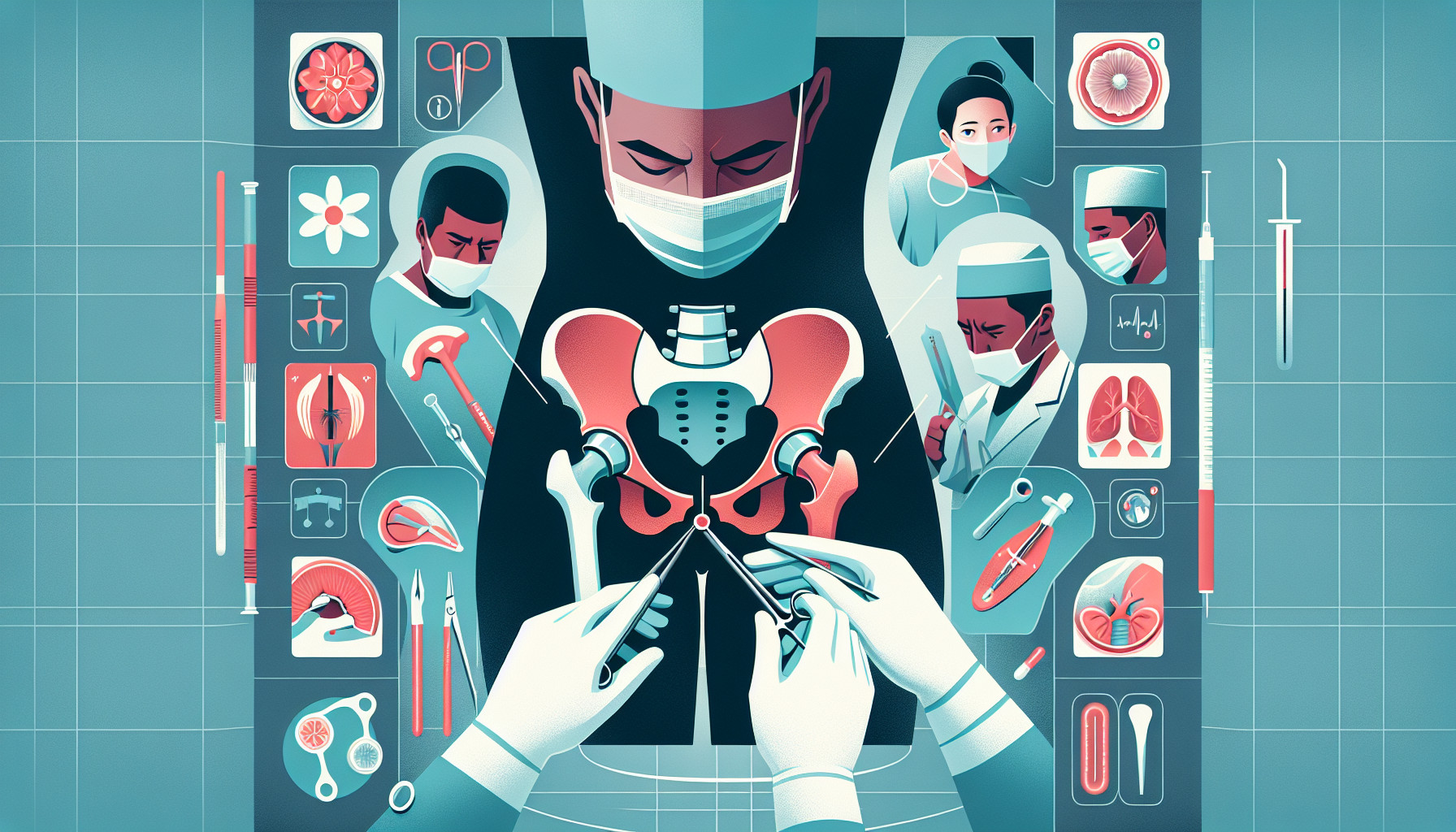Our Summary
This research paper talks about metabolic bone diseases, a group of conditions that affect how your bones and joints function. This can lead to bone deformations and joint disease. Sometimes, it’s so painful for patients that they need hip replacement surgery. The research paper emphasizes that surgeons need to take special care with these patients to avoid complications. This includes accurately diagnosing the disease before surgery, being aware of potential issues during the surgery, and using certain medications to ensure the best long-term results after the surgery.
FAQs
- What are metabolic bone diseases and how do they affect the joints?
- Why do some patients with metabolic bone diseases require hip replacement surgery?
- What precautions should surgeons take when performing hip replacement surgeries on patients with metabolic bone diseases?
Doctor’s Tip
One helpful tip a doctor might tell a patient about hip replacement is to follow their post-operative care instructions carefully. This may include doing physical therapy exercises, avoiding certain activities that could strain the hip joint, and taking medications as prescribed. Following these instructions can help ensure a successful recovery and long-term success of the hip replacement.
Suitable For
Patients who are typically recommended hip replacement surgery include those with severe osteoarthritis, rheumatoid arthritis, avascular necrosis, hip fractures, and other conditions that cause significant pain, stiffness, and limited mobility in the hip joint. Additionally, patients with metabolic bone diseases such as osteoporosis, Paget’s disease, and osteomalacia may also be recommended for hip replacement surgery if conservative treatments have been ineffective in relieving their symptoms.
It is important for surgeons to thoroughly evaluate each patient’s individual case and consider their overall health and any underlying conditions before recommending hip replacement surgery. Patients with metabolic bone diseases may have weakened bones, which can increase the risk of complications during and after surgery. Therefore, it is crucial for surgeons to take special precautions, such as using specialized surgical techniques, implant materials, and medications, to ensure the best possible outcomes for these patients.
Overall, patients with metabolic bone diseases who are recommended for hip replacement surgery require careful and individualized treatment to address their unique needs and minimize the risk of complications. By working closely with a multidisciplinary team of healthcare providers, including orthopedic surgeons, rheumatologists, and physical therapists, these patients can achieve successful outcomes and improve their quality of life.
Timeline
Before hip replacement:
- Patient experiences symptoms of a metabolic bone disease, such as bone deformations or joint pain.
- Patient undergoes diagnostic tests to confirm the condition and determine the extent of damage to the hip joint.
- Patient consults with an orthopedic surgeon to discuss the possibility of hip replacement surgery.
- Preoperative preparations are made, including medical evaluations, physical therapy, and discussions about the surgery and recovery process.
After hip replacement:
- Patient undergoes hip replacement surgery, where the damaged hip joint is replaced with an artificial joint.
- Patient stays in the hospital for a few days to recover and receive postoperative care.
- Patient begins physical therapy to regain strength and mobility in the hip joint.
- Patient follows a rehabilitation program to gradually increase activity levels and improve function in the hip.
- Patient continues to follow up with the surgeon for regular check-ups and monitoring of the hip joint.
- Patient may need to take medications to manage pain and prevent complications related to the surgery.
- Long-term follow-up care is necessary to ensure the artificial hip joint remains functional and to address any issues that may arise.
What to Ask Your Doctor
- How do I know if I am a candidate for hip replacement surgery?
- What tests or evaluations will be done to determine if hip replacement is necessary for me?
- What are the potential risks and complications associated with hip replacement surgery?
- How long is the recovery process after hip replacement surgery?
- What type of physical therapy or rehabilitation will I need after the surgery?
- Will I need any assistive devices or modifications to my home after the surgery?
- Are there any restrictions or limitations I need to be aware of after hip replacement surgery?
- What is the expected outcome of the surgery in terms of pain relief and improved mobility?
- How long can I expect the hip replacement to last before needing a revision surgery?
- Are there any alternative treatments or therapies that I should consider before deciding on hip replacement surgery?
Reference
Authors: Moya-Angeler J, Lane JM, Rodriguez JA. Journal: J Am Acad Orthop Surg. 2017 Nov;25(11):725-735. doi: 10.5435/JAAOS-D-16-00067. PMID: 29059109
